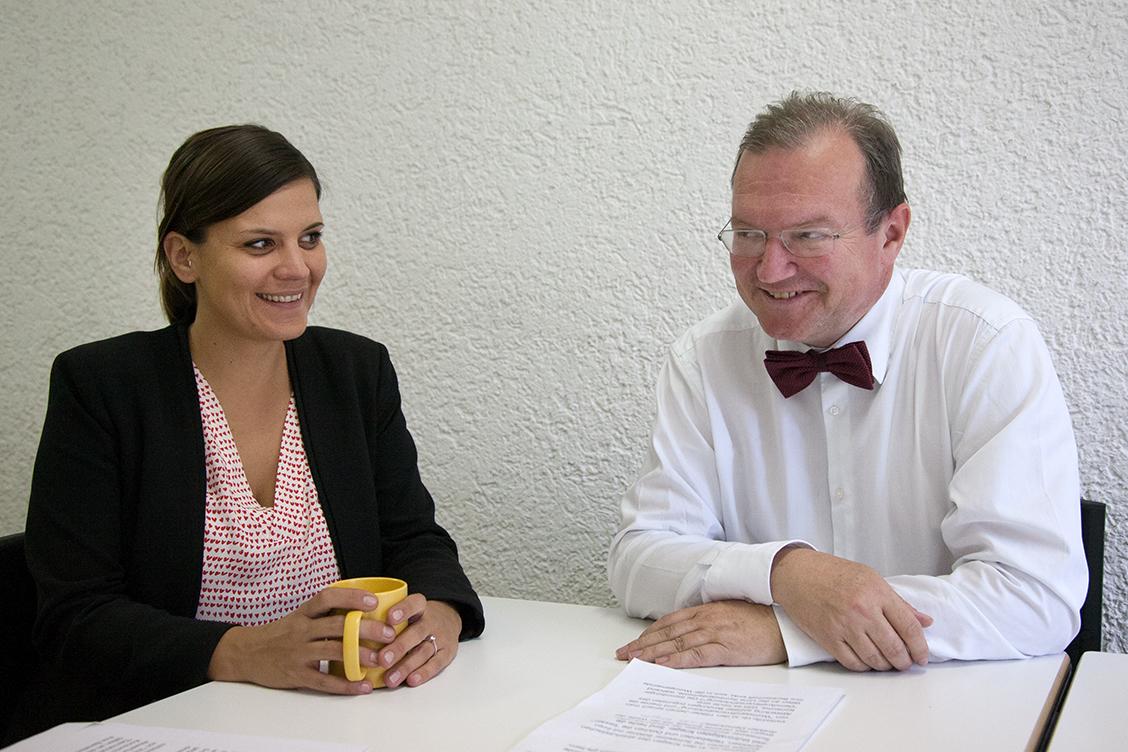Commission wants a more efficient transnational democracy
Three years after the introduction of the European Citizens’ Initiative — the world’s first tool of direct citizen participation at the transnational level — a new report by the European Commission highlights the classic challenge facing the ECI: the powers that be prefer to have more efficiency rather than more democracy, writes Bruno Kaufmann, editor-in-chief at people2power.info.
The European Commission is a model student when it comes to following the rules, and so- just in time and as required by law – it has presented a reportExternal link on the first three years of the European Citizens’ initiative.
This historic first tool of direct citizen participation at the transnational level was introduced in April 2012, based on the principles of participatory democracy (Art. 11) in the Lisbon Treaty, the EU’s main constitutional text.
Now the Commission dutifully published its report on the ”Application of Regulation No 211/2011” online a few days ahead of the April 1 deadline and simultaneously in all the EU languages.

The reports offer very interesting and informative reading, as the Commission was able to aggregate all the available resources and inputs in its 16-page briefing.
Here are the main facts:
50+: Since April 2012 the Commission has received 51 ECI requests and accepted 31 of them;
Many refusals: While 20 initiatives were refused by the Commission, ten were withdrawn during the collection period and only three met all the requirements for receiving a response from the Commission;
Going to court: In the case of six initiatives, the citizens’ committee behind each initiative chose to take the Commission to the European Court. All of these cases are pending;
Transnational organisers: Among the 51 organising commitees (the requirement is that at least seven citizens from seven different member states be included) only three member states have not been represented: Hungary, Latvia and Malta. The countries most represented were France (on 40 of the committees), Germany (23), ahead of Britain and Italy (21 each);
Youth participation: Age-wise the 21-30 year olds are the best represented groups on organising committees (74), followed by the 31-40s and the 41-50s (39 each); there have been three very young (>20) and two very senior (80+) organisers;
Dual collection method: As an innovation, European citizens’ initiatives can gather statements of support both on paper and electronically. Among the three ”successful” initiatives (Right2Water, Oneofus, Stopvivisection), the online process was the most popular, with 55% of signatures on those measures collected that way;
Valid signatures: All 28 member states have been asked to verify ECI signatures; 17 of them did so by random sampling, while the remaining 11 did a full check. In both cases approximately 90% were found to be valid;
Interaction: The Commission reports that it has answered 1,080 questions from EU citizens about the ECI procedures, while 15 informal registration checks have been undertaken. There were around 500 requests for direct support from registered initiatives. More than six million EU citizens have been involved in the new process in some way so far.
Impressive
Taken together, we get a rather impressive picture of this new, young and fresh element of EU democracy.

More
European Citizens’ Initiatives: what next?
For the Commission there is thus no doubt that the ”ECI has been fully implemented”. But luckily there is no full stop after this consideration in the report.
On the contrary, the Commission acknowledges that the trend of the first three years has been negative (with 16 registered initiatives during the first year, nine in 2013, five in 2014 and just one so far in 2015) and that ”there is still room to improve [the ECI procedure]”.
In a comment on the report, the responsible Commissioner, First Vice-President Frans Timmermans, emphasises that “the ECI is one of the building blocks for strengthening trust in the European institutions and for promoting active participation of citizens in EU policy-making. (..) we must make sure it lives up to its full potential.”
Timmermans addresses a critical point in the whole framework: Whose definition of ”full potential”?
The report reveals an unsurprising gap between the ambitions of the Commission – which is one of the key centres of political and administrative power in Europe and the European sovereign — and EU citizens.
Self-congratulations
In respect to the ECI, the Commission’s major concern is efficiency.
In the ECI report the Commission congratulates itself for offering unbureaucratic support to the organisers and for being instrumental in simplifying the verification procedures.
It also sets out ongoing improvements to the online system. In addition, the report highlights a series of problems under the current system, such as:
Liability challenge: Lack of a full status as a legal committee for the organisers, which creates hurdles when it comes to raising funds, managing data protection and liability issues;
Registration hurdle: A large number of initiatives which were not accepted by the Commission – despite prior informal checks;
Lack of time: Limited time available for the collection of signatures online due to problems with certifying an online collection system;
The Commission also addresses practical questions like translations, which are critical to the transnational outreach of the ECI.
Here, another EU institution, the European Economic and Social Committee (EESC), has taken the lead and now offers (free) translations into 23 languages for registered ECIs.
The Committee is also complementing its original manual for the ECI with a more comprehensive European Passport to Active Citizenship – to be published on the forthcoming European Citizens’ Initiative DayExternal link on April 13 (that day’s events will be streamed here at people2power.info).
Missing points
But the Commission never really addresses the concerns of EU citizens, who want to expand people power at the transnational level.
Perhaps subconsciously, the Commission offers an insight into its truly modest ambitions for the ECI development in an accompanying press release, in which it mentions ”giving the citizens a say”.
Hold on. Who giving what to who?
There appears to be a confusion about the concept of popular sovereignty in many modern democracies, where those who hold certain powers delegated by the citizens are often very reluctant to share new powers with the very same citizens.
In the ECI report the Commission proposes several improvements as to the efficiency dimension of the legislation (simplifications, software improvements etc), while it remains silent about any deepening of the democratic outreach of the European Citizens’ Initiative.
This does not come as a surprise and should be understood as an invitation and an obligation to all political forces to work for a genuinely up-to-date and improved version of the world’s first tool of direct citizen participation at the transnational level.
The views expressed in this article are solely those of the author, and do not necessarily reflect the views of swissinfo.ch.
Opinion series
swissinfo.ch publishes op-ed articles by contributors writing on a wide range of topics – Swiss issues or those that impact Switzerland. The selection of articles presents a diversity of opinions designed to enrich the debate on the issues discussed.

In compliance with the JTI standards
More: SWI swissinfo.ch certified by the Journalism Trust Initiative











You can find an overview of ongoing debates with our journalists here . Please join us!
If you want to start a conversation about a topic raised in this article or want to report factual errors, email us at english@swissinfo.ch.